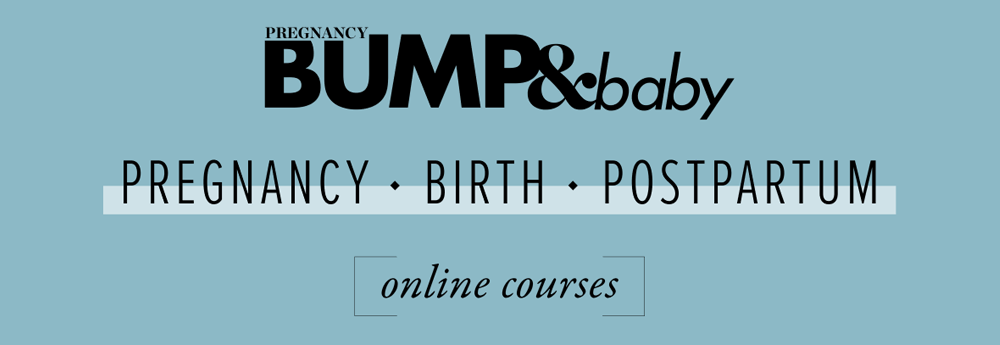
From morning sickness and the office lavatories to what to do if your employer is treating you unfairly because you’re working during pregnancy, working mums- to-be have a few things to think about, explains Penny Voigt
If you’re working during your pregnancy, there are a number of important decisions you’ll need to make about your employment and your baby: Things like when to tell your boss you’re pregnant, when to stop working, how much parental leave you’re entitled to, how to cope with being pregnant at work, health and safety implications in your current role, and what to do if you feel you are being discriminated against because of your pregnancy.
FACT:
Treating a woman unfairly in employment because she is pregnant or may become pregnant is unlawful.
70% of pregnant women get morning sickness, so it’s important the office loos are clean because you may be spending a fair amount of time in there!
When to tell your boss
Most women wait until they’ve reached the 12-week mark, but the sooner you let your employer know, the more time you have to put into place any plans to cover your role while you’re away on maternity leave.
You must give your employer at least three months’ written notice before your expected due date of delivery, in order to receive your maternity leave entitlement. Your notice must be accompanied by a medical certificate confirming your pregnancy and due date. You’ll also need to let your employer know if you intend to start your maternity leave early, with at least 21 days’ written notice.
Health and safety implications
Under the Health and Safety in Employment Act, all employers are responsible for identifying and managing workplace hazards to employees. Your employer must ensure that you are not exposed to hazards that could affect your unborn child, like working in a cramped position, handling or moving heavy loads, or working in a hot atmosphere. If your current role involves work that may be deemed unsafe for both you and your baby during pregnancy, your employer can transfer you to alternative duties, but your agreed terms and conditions of employment, including pay, will still apply. If you work shifts, you should be given the choice of not working night shifts for the duration of your pregnancy.
Pregnancy discrimination
Treating a woman unfairly in employment because she is pregnant or may become pregnant is unlawful and may be classed as pregnancy discrimination. This could included any one of the following situations where a pregnant woman is:
- Refused employment, promotion, or the opportunity to apply for a position.
- Dismissed or made redundant.
- Subjected to derogatory remarks.
- Excluded from training, work functions, or other benefits.
- Transferred to other jobs without consultation or their agreement.
- Demoted.
You have the right to question why you are being treated unfairly, and if you suspect it is because of your pregnancy, there are formal processes you can pursue.
To familiarise yourself with your rights, visit the NZ Human Rights Commission website (hrc.co.nz) or call the Human Rights InfoLine on 0800 496 877.
Parental leave entitlements
To qualify for parental leave, you must have worked for the same employer for at least six or 12 months before your baby’s expected delivery date. During this time, you must also have worked for an average of at least 10 hours per week.
How much parental leave and what type you qualify for will depend on whether or not you are the primary caregiver, how many hours you have worked, and how long you have worked for. To work out your entitlements, visit mbie.govt.nz.
While your employer is not obliged to pay you during your parental leave, you may qualify for government-funded payments provided you’ve been an employee, either with the same employer or more than one employer, or been self-employed, for an average of at least 10 hours a week for any 26 of the 52 weeks immediately before your baby’s due date.
Your parental leave payments are for one continuous 18-week period and you need to apply to Inland Revenue for your parental leave payments. The maximum payment amount you’re entitled to is $516.85 per week before tax or your gross pay before tax, whichever is lower.
You’re also entitled to take a total of up to 10 days’ unpaid special leave for reasons connected with pregnancy, which could include appointments with your midwife or doctor.
Provided your spouse or partner has worked for the 12-month qualifying period, they are entitled to up to two weeks’ leave taken around the time of your baby’s birth. You can also transfer up to 18 weeks of your parental leave payments to your spouse or partner to extend their leave.
Extended parental leave of up to one year, which includes your 18 weeks of primary carer’s leave, can also be taken, provided you have worked for the 12-month qualifying period.
Coping with morning sickness at work
Morning sickness is an inevitable part of pregnancy, affecting around 70% of women. Starting as early as six weeks into pregnancy, morning sickness generally peaks around the eighth or ninth week.
Having to cope with morning sickness if working during pregnancy is challenging. Here are a few tips to help you cope:
- As your pregnancy hormones kick in, a heightened sense of smell can mean strong odours – like your co-worker’s perfume – can bring on your nausea. When you’re unable to open a window or to walk away, try sniffing something refreshing like lemon-scented spray or a sprig of rosemary.
- Track when exactly you’re feeling your worst – if your nausea tends to hit you at the same time each day, try to identify what it is that makes you feel ill and avoid those triggers as much as you can – perhaps it’s lunchtime smells in the of office canteen or the rubbish bin being emptied.
- Schedule some holiday time around the seventh or eighth week into your pregnancy, when morning sickness is usually at its worst.
- Ensure you’re drinking enough water each day – keep a bottle of water at your desk and take small sips or crunch on ice chips, even if it feels impossible to keep anything in your stomach.
- Snacking on small amounts more often, especially bland, carb-rich snacks like crackers, dry cereal or pretzels, can help you deal with the nausea. Try adding a thin slice of ginger to hot water or tea, sipping at ginger ale or snacking on ginger biscuits – ginger has long been regarded as a natural remedy for tummy issues.
- Adjust your computer’s screen resolution to reduce eye strain, as it could be aggravating your nausea. Adjust your font size to something bolder and bigger, and change your background to a soft pink or light tan colour. Remember also to take short breaks from your computer – get up, walk around and focus your eyes on something else.
Useful links
+ employment.govt.nz/leave-and-holidays/parental- leave
+ www.ird.govt.nz/yoursituation-ind/parents/ parents-paid-parental-leave.html
+ www.hrc.co.nz/ les/8214/2372/1661/19-Oct-2010_15-02-36_Your-rights-as-a- pregnant-worker.html
+ www.cab.org.nz/Pages/home.aspx
BUMP&baby
BUMP & baby is New Zealand’s only magazine for pregnancy and early babyhood. Our team of mums and mums-to-be understand what it’s like to be pregnant in this connected age, and that’s why BUMP & Baby online is geared toward what pregnant women and new mums really want to know.
Other articles of interest
Giving birth naturally — your way
With all of the birth techniques available, how do you know which one is right for you?
Beyond the baby blues
It’s normal to feel a bit down following childbirth. But what if your feelings don’t improve, or you aren’t coping? You may have postnatal depression, also known as PND







